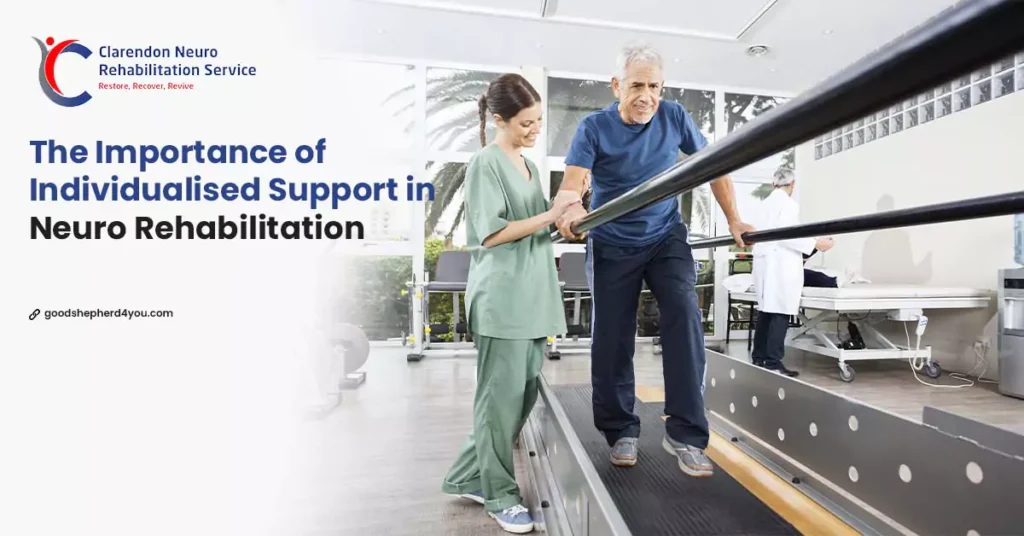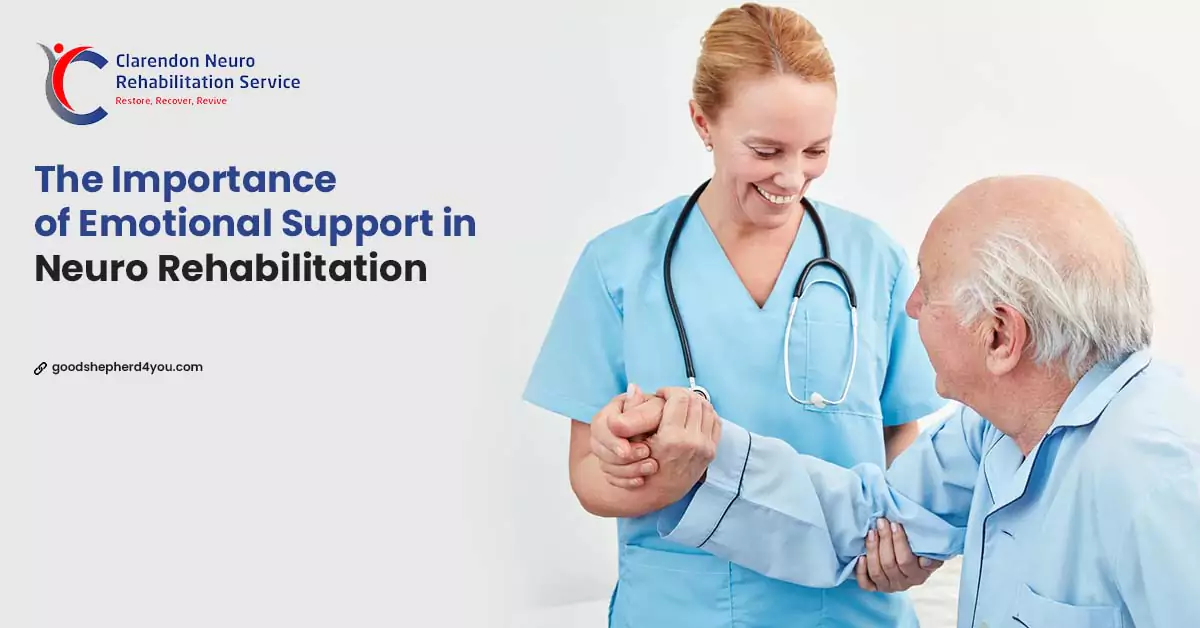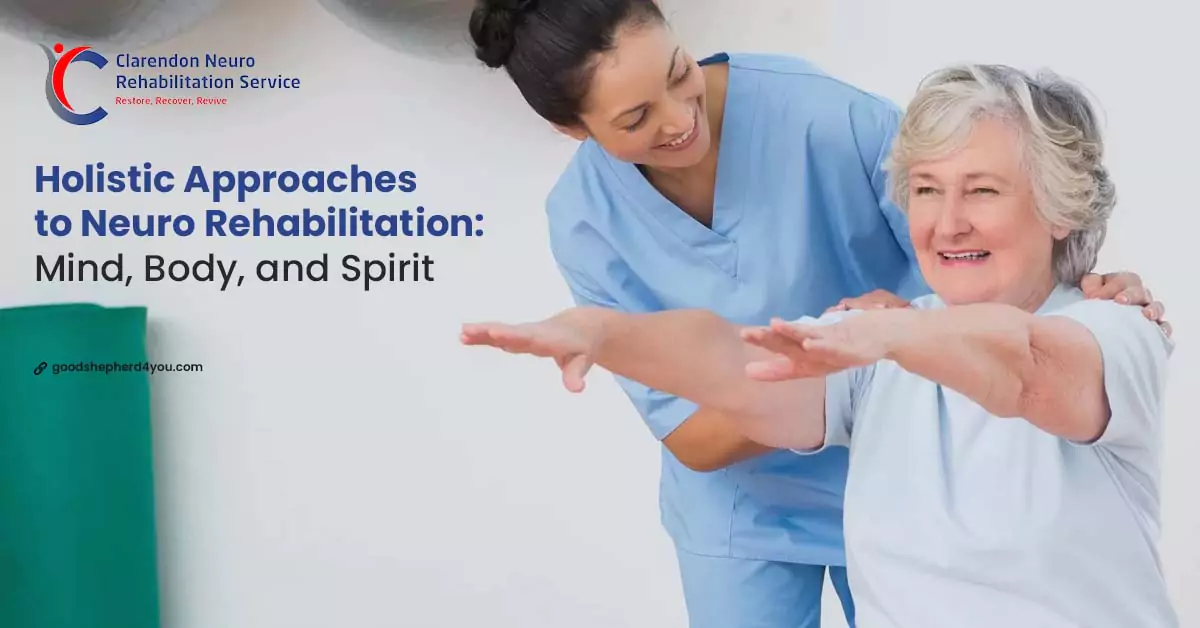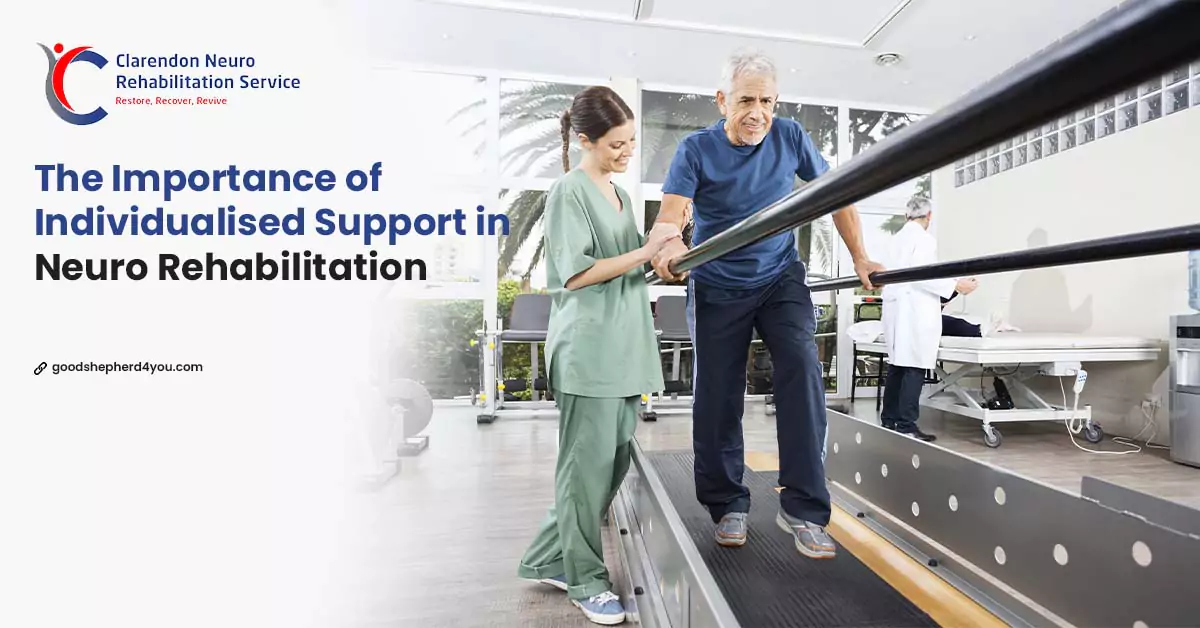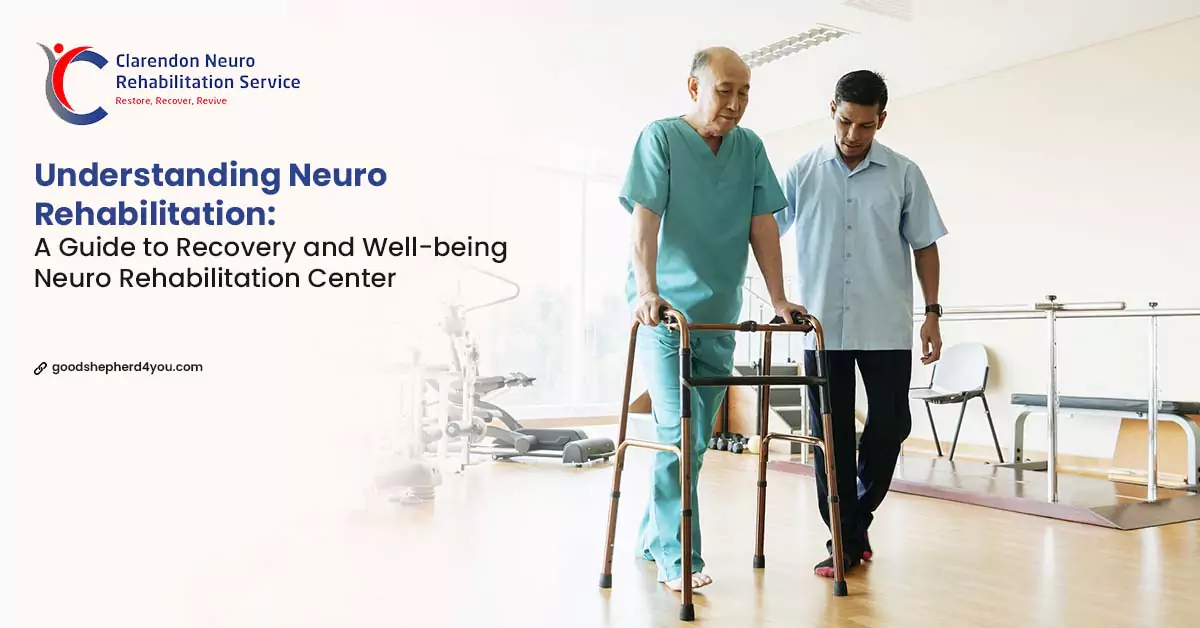Neurological recovery may be a complex and multifaceted preparation that points to upgrading the quality of life and valuable freedom of people with neurological conditions. One of the foundations of viable neurorehabilitation is arranging individualised back custom-fitted to each patient’s unique needs and challenges. This comprehensive web journal will investigate the significance of individualised back in neurorehabilitation and look at its centrality in advancing recovery, maximising results, and cultivating long-term well-being.
Key Takeaways
- Individualised neurorehabilitation support recognises each patient’s unique needs, strengths, and goals, leading to personalised treatment plans tailored to maximise outcomes.
- By collaborating with patients to identify meaningful goals, rehabilitation professionals empower patients to engage in their recovery process actively, enhancing motivation and engagement.
- Neurological conditions present diverse challenges that require flexible and adaptive strategies. Individualised support allows rehabilitation professionals to tailor interventions based on each patient’s evolving needs and progress.
- Empowering patients to take ownership of their recovery journey fosters autonomy, self-efficacy, and confidence, leading to better long-term success and sustainability.
- Personalised care and interventions provided through individualised support enhance the overall quality of life for individuals with neurological conditions by addressing physical, mental, emotional, and social needs.
Understanding Individualised Support in Neuro Recovery
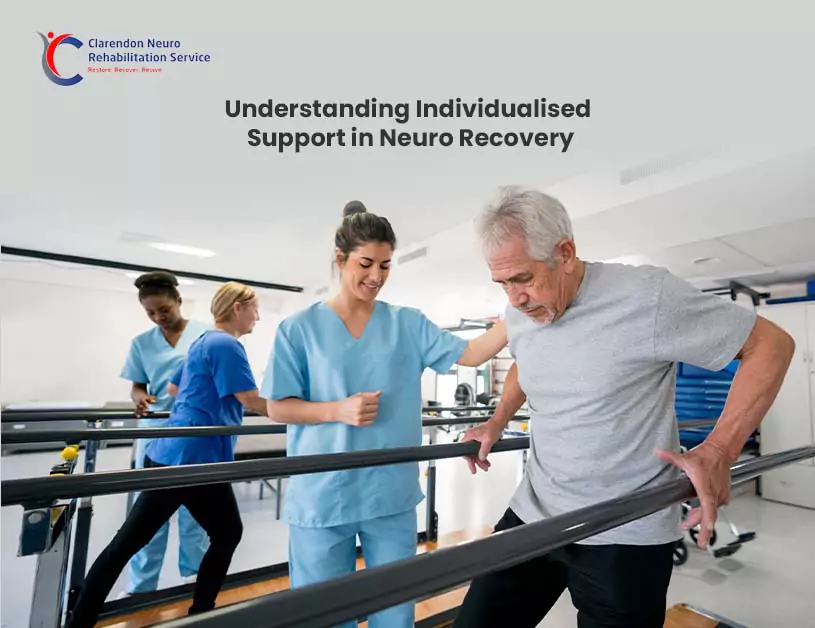
Neurological conditions, whether obtained through damage, infection, or other causes, can result in various disabilities influencing development, cognition, communication, and enthusiastic control. The nature and seriousness of these disabilities vary from individual to individual, highlighting the need for personalised interventions and back methodologies in neurorehabilitation.
Individualised support in neuro restoration includes an all-encompassing approach that considers each individual’s unique qualities, shortcomings, preferences, and goals. Instead of applying standardised treatment conventions, individualised therapy recognises the differing qualities of patients’ encounters and challenges and tailors mediations similarly.
Recognising the Unique Needs of Each Persistent
Each person experiencing neurorehabilitation incorporates a specific therapeutic history, functional capabilities, and circumstances impacting their rehabilitation journey. Individualised support starts with a comprehensive review of each patient’s impediments and objectives. By recognising each individual’s fascinating needs, recovery experts can develop personalised treatment plans that address their specific challenges and optimise their healing potential.
Fitting Mediations to Realise Important Objectives
In neurorehabilitation, success isn’t exclusively characterised by reestablishing physical work but also by accomplishing important objectives that improve the quality of life and advance autonomy. The individualised back includes:
- Collaborating with patients to recognise their objectives, whether recapturing versatility.
- Making headway in communication abilities.
- Returning to work.
- Taking an interest in significant exercises.
Adapting mediations to these objectives, rehabilitation experts can spur and engage patients to effectively lock in recovery.
Adjusting Procedures to Address One of kind Challenges
Neurological conditions present challenges that require adaptable and versatile procedures to address viably. Individualised support recognises that what works for one person may not work for another. Recovery experts must be arranged to adjust their approaches based on each individual’s evolving needs and progress. Whether altering treatment methods, adjusting the environment, or incorporating assistive innovations, customisation is essential to overcoming obstructions and advancing success in neurorehabilitation.
Engaging Patients to Require Right of Their Healing
Enabling patients to require a dynamic part in their healing journey is fundamental to neurorehabilitation’s success. Individualised support cultivates patients’ independence, self-efficacy, and certainty to create educated choices and effectively take an interest in their treatment. By giving instruction, support, and continuous feedback, rehabilitation experts enable patients to acquire possession of their healing and become accomplices in the recovery process.
Benefits Of Individualised Support In Neuro Restoration
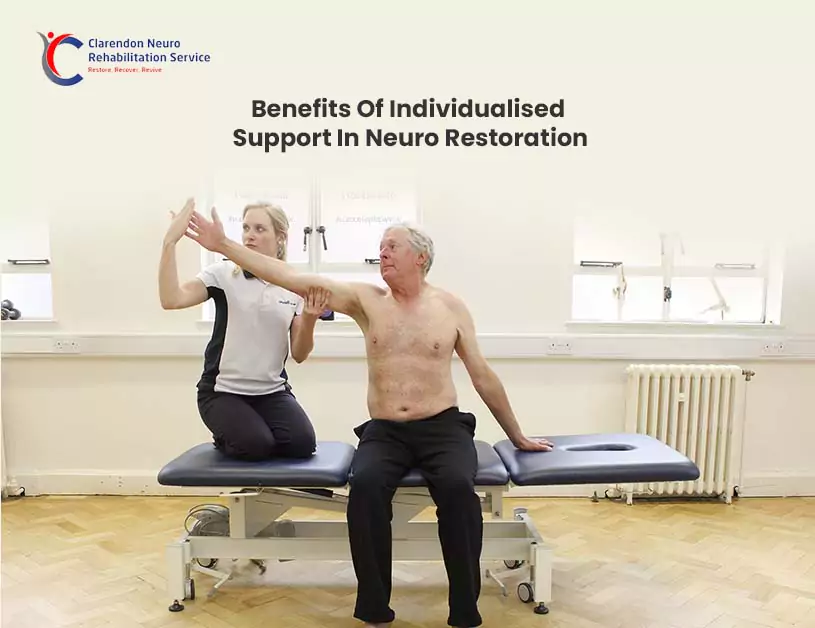
Presently, we’ve investigated the standards of individualised support in neuro recovery; let’s look at the essential benefits it offers to patients:
1- Personalised Care
Individualised support guarantees patients personalised care tailored to their unique needs, preferences, and goals. By listening to each person’s particular challenges and objectives, recovery experts can maximise the adequacy of interventions and advance superior results.
2- Improved Inspiration and Engagement
Patients who feel their recovery program is personalised and adjusted to their goals will likely be persuaded and closed in during the practice. Individualised support cultivates a sense of ownership and venture in one’s recovery, leading to more prominent dedication to treatment plans and more noteworthy choices in work.
3- Optimal Use of Resources
By customising intercessions based on a person’s needs, recovery experts can optimise resource utilisation and avoid excessive medications or intercessions. This focused approach guarantees that resources are used effectively, driving cost-effective care and better utilisation of healthcare assets.
4- Moved forward Quality of Life
Individualised support focuses on upgrading patients’ overall quality of life with neurological conditions. By tending to physical impedances and mental, enthusiastic, and social needs, rehabilitation experts can help patients recapture independence, participate in meaningful activities, and appreciate a better overall quality of life.
5- Long-Term Success and Supportability
Individualised back sets the organisation up for long-term success and supportability in neurorehabilitation. Recovery experts enable patients to navigate the challenges of daily living and maintain their preferences over time by equipping them with the abilities, techniques, and assets they need to manage their condition successfully.
Personalised Care With Goodshepherd4you

At Goodshepherd4you, we understand the importance of individualised support in neurorehabilitation. Our team of dedicated professionals is committed to providing personalised care and tailored interventions to meet each patient’s unique needs. We take a holistic approach that encompasses physical, mental, emotional, and social aspects of recovery, striving to maximise outcomes and enhance the quality of life for individuals with neurological conditions.
Contact us today to learn more about our comprehensive neurorehabilitation services and how we can support you on your journey to recovery and well-being.
FAQs About Individual Support In Neuro Rehabilitation
What is individualised support in neurorehabilitation?
Individualised support in neurorehabilitation involves tailoring treatment plans and interventions to meet each patient’s unique needs, strengths, and goals.
How does individualised support benefit patients?
Individualised support maximises outcomes by providing personalised care, enhancing motivation and engagement, promoting long-term success, and improving the overall quality of life for individuals with neurological conditions.
What interventions are included in individualised support?
Individualised support may include physical therapy, occupational therapy, speech-language therapy, mental rehabilitation, psychological support, vocational rehabilitation, and community integration programs.
How can patients and caregivers advocate for individualised support?
Patients and guardians can help with individualised support by actively participating in treatment planning, expressing their goals and preferences, providing feedback on the effectiveness of interventions, and collaborating with rehabilitation professionals as partners in the recovery process.
Conclusion
Individualised support is vital in neurorehabilitation because it recognises the fascinating needs, qualities, and objectives of each understanding and tailors medications appropriately. Individualised support maximises results and upgrades the quality of life for people with neurological conditions by giving personalised care, cultivating inspiration and engagement, and advancing long-term success. As neurorehabilitation advances, the significance of individualised support remains central to conveying successful and compassionate care to those in need.



